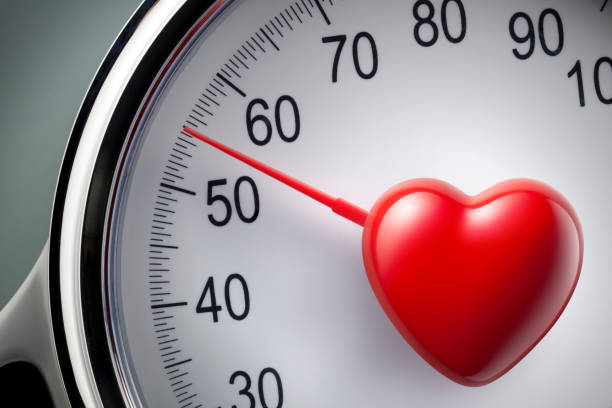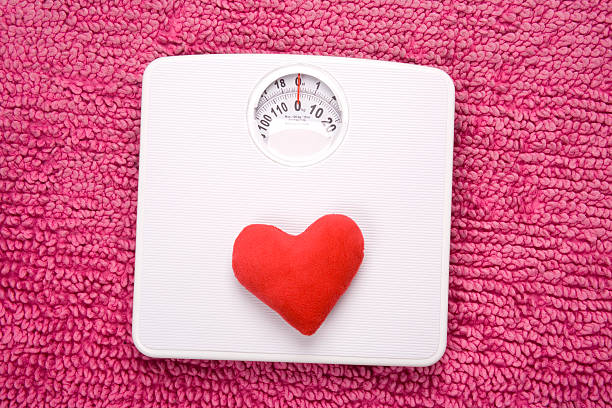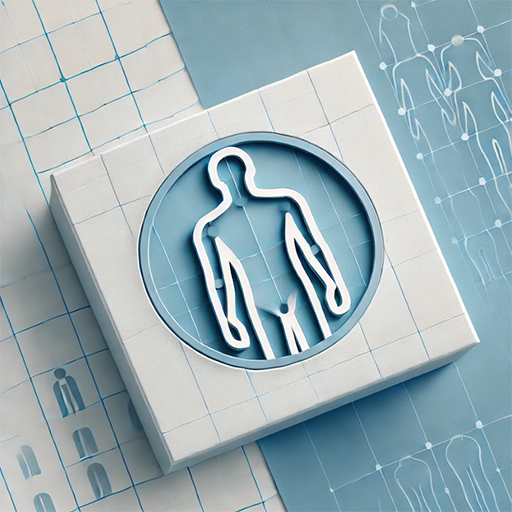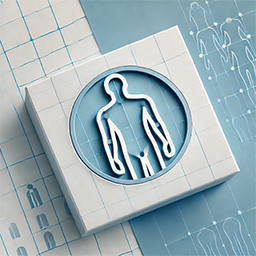Introduction: A Healthy Heart Starts With a Healthy Weight
Your heart is one of the hardest-working muscles in your body. Every day, it pumps blood, delivers oxygen, and keeps all your organs working properly. But if you’re carrying extra weight, your heart has to work overtime. This added strain can raise your risk for serious health problems like heart disease, high blood pressure, and stroke. The good news? Even a small amount of weight loss can make a big impact. Dropping just 5–10% of your body weight can help lower blood pressure, improve cholesterol levels, and reduce stress on your heart. In this post, we’ll explore how losing weight can protect your heart and boost your overall health.
Why Heart Health Matters
Heart disease is the number one cause of death around the world, according to the World Health Organization. In the United States, the Centers for Disease Control and Prevention (CDC) says that someone dies from heart disease every 33 seconds.
Some of the most common heart-related problems include:
- High blood pressure (hypertension)
- High cholesterol
- Coronary artery disease
- Heart attacks
- Stroke
Many of these conditions are closely tied to being overweight or obese. Carrying extra weight puts more strain on your heart and blood vessels. That’s why losing weight is one of the smartest and most effective ways to lower your risk and keep your heart healthy.

How Weight Affects Your Heart
Carrying extra weight affects almost every part of your body—but your heart feels it the most. Extra fat forces your heart to pump harder to move blood through your body. Over time, this added pressure can weaken the heart and increase the risk of serious problems like high blood pressure, heart disease, and stroke.
1. Increased Blood Pressure
When you’re overweight, your heart has to work harder to push blood through your body. This extra effort raises your blood pressure, putting more stress on your arteries. Over time, this strain can damage blood vessels and increase the risk of heart disease, heart attacks, and stroke. High blood pressure is often called the “silent killer” because it can cause harm without showing any clear signs.
2. Higher Cholesterol Levels
Carrying extra body fat can raise your LDL (“bad”) cholesterol and lower your HDL (“good”) cholesterol. This imbalance makes it easier for fat to build up in your arteries, which can slow blood flow to your heart. Extra weight can also lead to higher levels of triglycerides, another type of fat found in your blood. High triglycerides are linked to a greater risk of heart disease and stroke.
3. More Inflammation
Fat tissue, especially belly fat, can trigger inflammation in the body. This type of fat isn’t just stored energy—it also sends out signals that cause your immune system to stay active. Over time, this ongoing, low-level inflammation can harm your health. Chronic inflammation can damage blood vessels, weaken heart tissue, and raise your risk of heart disease and other serious conditions.
4. Insulin Resistance and Diabetes
Being overweight raises your risk of developing type 2 diabetes, a condition that also increases your chance of heart disease. When your blood sugar stays too high for too long, it can damage blood vessels and the nerves that help control your heart. This damage makes it harder for your heart to work properly and increases the risk of heart attack, stroke, and other heart problems.
How Weight Loss Improves Heart Health
You don’t have to lose a lot of weight to make a big difference in your health. The American Heart Association says that losing just 5% to 10% of your body weight can lead to real improvements in heart health. Even small changes can help lower blood pressure, improve cholesterol levels, and reduce your risk of heart disease and stroke.
1. Lowers Blood Pressure
Losing weight helps lower the pressure of blood pushing against your artery walls, which is known as blood pressure. When blood pressure goes down, your heart doesn’t have to work as hard to move blood through your body. This gives your heart a break and helps reduce the risk of heart disease, stroke, and other serious problems.
2. Improves Cholesterol Levels
Losing weight can help lower your LDL (“bad”) cholesterol and triglycerides, while also increasing your HDL (“good”) cholesterol. This balance is important because it helps prevent plaque from building up in your arteries. Lower plaque levels allow blood to flow more easily, reducing the risk of heart disease, stroke, and other cardiovascular problems.
3. Reduces Risk of Heart Disease
People who lose weight can significantly lower their risk of heart disease and stroke. In fact, a 2021 study published in the Journal of the American Medical Association found that losing weight was associated with a 32% lower risk of developing heart failure. This highlights the powerful impact weight loss can have on heart health and the importance of maintaining a healthy weight to protect your heart for the long term.
4. Better Blood Sugar Control
Shedding extra pounds can help your body use insulin more efficiently. When your body becomes better at using insulin, your blood sugar levels stay lower and more stable. This not only reduces your risk of developing type 2 diabetes, but it also helps protect your heart from the complications often linked to diabetes, such as heart disease and stroke.

Other Benefits of Weight Loss
Improving heart health is just one of the many benefits of losing weight. Shedding pounds can also:
- Boost energy levels, helping you feel more active and alert
- Improve sleep quality, allowing your body to rest and recover better
- Reduce joint pain, especially in areas like the knees and hips
- Lower the risk of certain cancers, as excess weight is linked to cancer development
- Enhance mood and mental health, thanks to the release of feel-good hormones
All of these positive changes support a healthier heart and contribute to a better quality of life overall.
Simple Steps to Lose Weight Safely
You don’t need a crash diet or intense workout plan to get started. Small, consistent changes work best.
1. Eat Heart-Healthy Foods
Focus on whole, unprocessed foods. Try:
- Leafy greens (like spinach and kale)
- Berries
- Whole grains (like oats and brown rice)
- Lean proteins (like chicken, fish, and beans)
- Healthy fats (like olive oil and avocados)
Avoid:
- Processed snacks
- Sugary drinks
- Fried and fatty foods
- High-sodium items
Check out the DASH Diet, designed to lower blood pressure and improve heart health.
2. Move More Every Day
Aim for at least 150 minutes of moderate activity each week. That’s just 30 minutes a day, 5 days a week.
Great ways to get active:
- Walking
- Biking
- Swimming
- Dancing
- Gardening
Even small activities, like taking the stairs or parking farther away, add up.
3. Drink More Water
Water helps control hunger and supports every system in your body. Swap sugary drinks for water to cut calories and improve hydration.
4. Get Enough Sleep
Lack of sleep can lead to weight gain and heart problems. Aim for 7–9 hours of quality sleep each night.
5. Manage Stress
High stress can raise your blood pressure and make it harder to lose weight. Try:
- Deep breathing
- Meditation
- Yoga
- Talking to a friend or counselor
6. Set Realistic Goals
Start small and build momentum. For example:
- “I’ll walk 10 minutes a day this week.”
- “I’ll cook two healthy meals at home.”
- “I’ll drink one less soda each day.”
Every step counts.
When to Talk to Your Doctor
Before starting any weight loss plan, talk to your healthcare provider—especially if you have heart issues or other health conditions. They can help guide you with safe, personalized advice.
Your doctor may also suggest working with:
- A registered dietitian
- A personal trainer
- A therapist for emotional support

Frequently Asked Questions
Q: Can losing just 10 pounds help my heart?
Yes! Even a 5% weight loss can lower blood pressure, improve cholesterol, and reduce heart disease risk.
Q: How fast should I try to lose weight?
Aim to lose 1–2 pounds per week. Slow and steady wins the race.
Q: Is exercise or diet more important?
Both matter. A healthy diet creates a calorie deficit, and exercise boosts heart health, burns calories, and builds strength.
Take the First Step Today
Improving your heart health through weight loss is one of the most empowering things you can do. You don’t have to do it perfectly. You just have to get started.
Here’s how to begin:
✅ Set a small, achievable goal
✅ Add more movement to your day
✅ Make one healthy food swap
✅ Track your progress
Your heart will thank you. ❤️
Conclusion: A Healthier You Is Within Reach
Weight loss isn’t just about looking better—it’s about feeling better, living longer, and protecting your heart. By making simple, lasting changes, you can improve your heart health, lower your risk of disease, and enjoy a more active, fulfilling life.
Now it’s your turn!
What’s one heart-healthy habit you want to start today?
Share your thoughts, questions, or personal goals in the comments below—we’d love to hear from you!



